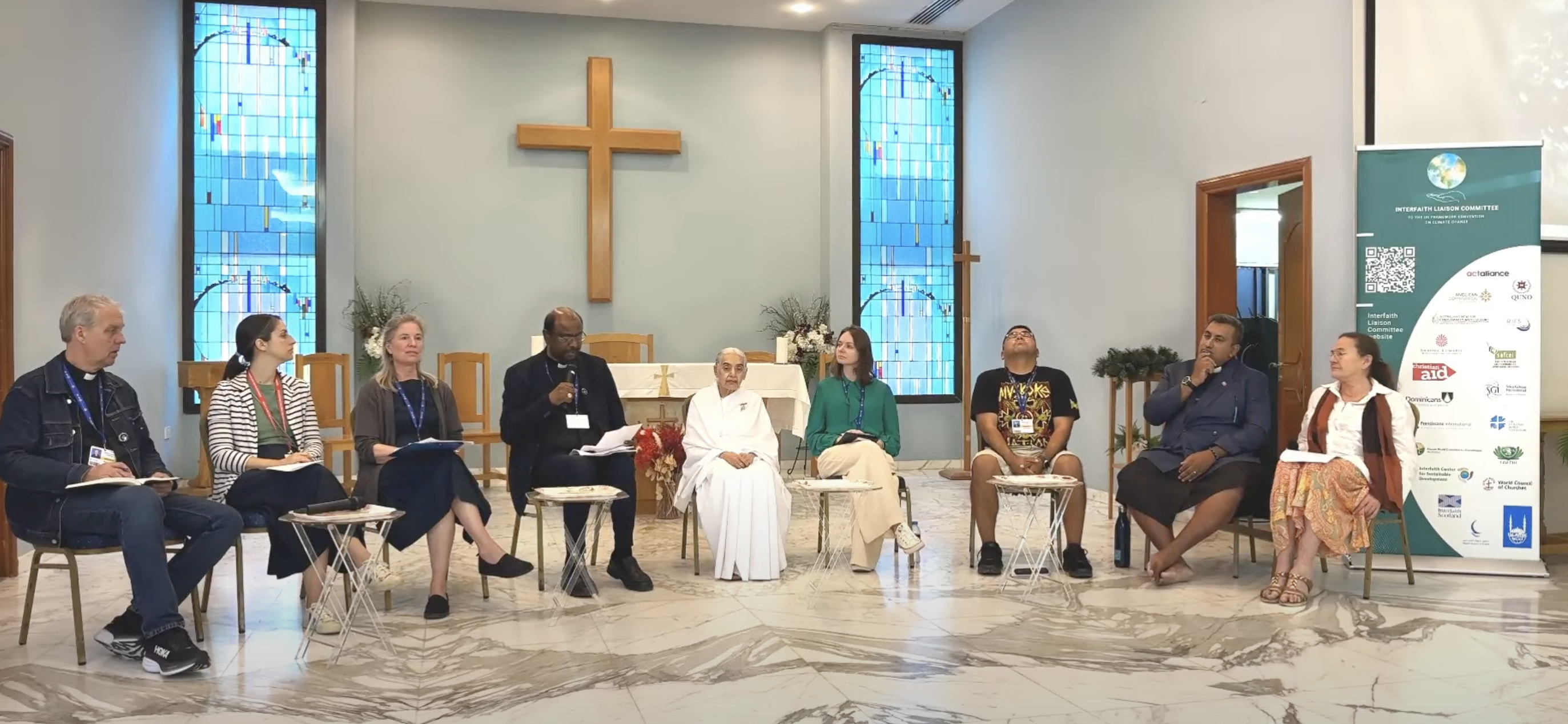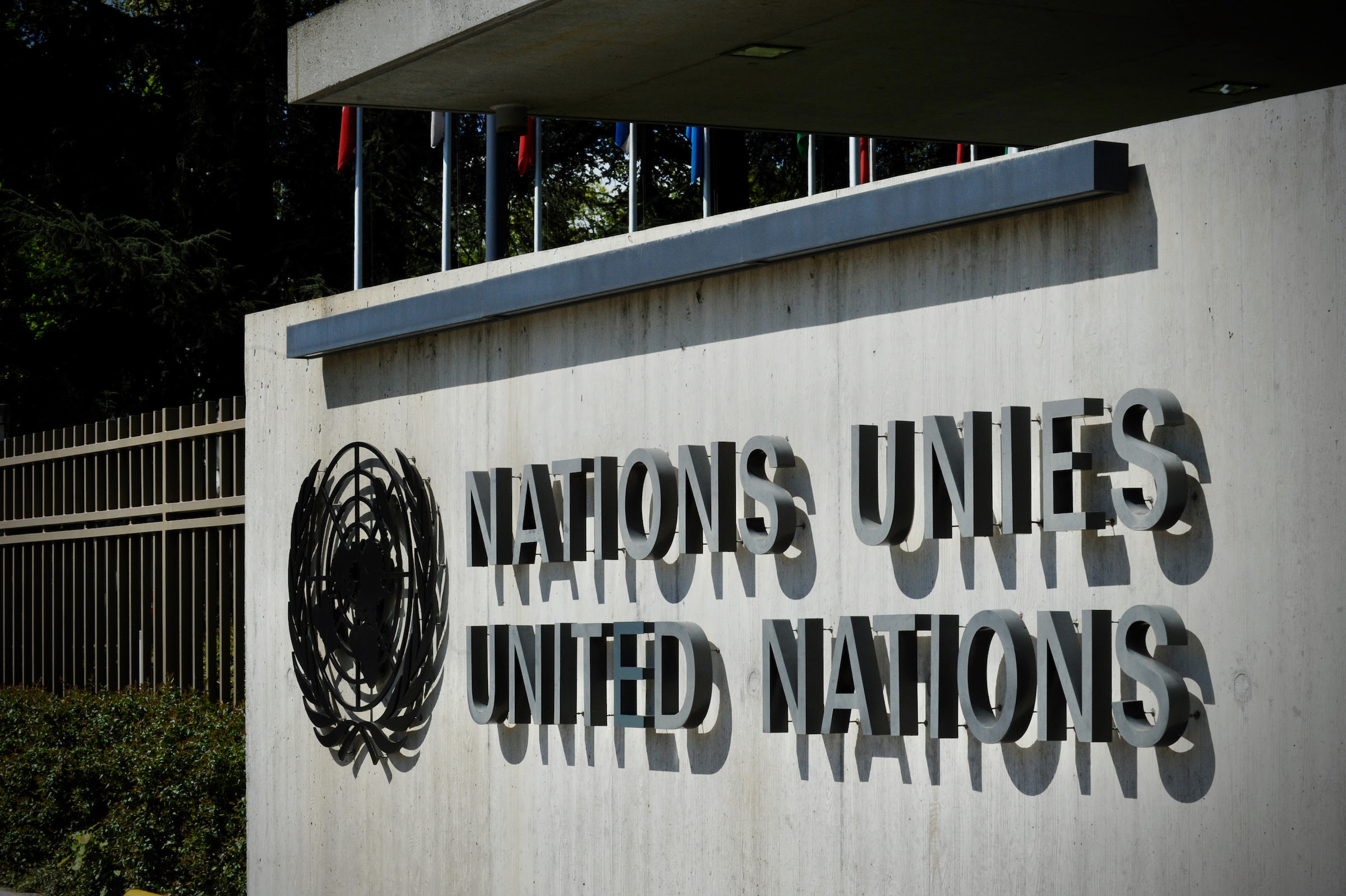Indeed, says the WCC’s general secretary, Rev. Dr Jerry Pillay, “As we implement our new strategic plan this year, the World Council of Churches is also entering a new phase in its relationship with the United Nations and other international agencies. So many of our activities are aligned with the UN’s Strategic Development Goals, and so many of the relationships we enjoy with UN agencies are yielding benefits worldwide.” “We see the whole global ecumenical movement journeying toward justice, peace, and reconciliation,” he continued. “Practically, that means pursuing human dignity, human rights, peace among peoples, and the health of the planet through deep engagement in concrete activities and consequential partnerships. As Christians, and as Christian churches, our discipleship finds concrete expression in enhancing the human good.” A storied history with demonstrable successes Of course, the WCC’s relations and collaborations with the UN and other international agencies for human rights, sustainable development, and peace go back decades. Even before the formal founding of the WCC in 1948, it had already established the Commission of the Churches on International Affairs (CCIA, 1946) to serve as a voice for the churches of the world in the formative processes of the United Nations, and became heavily engaged in refugee resettlement after World War II. Those relations soon led to consequential input by the WCC and member churches in formulating the Universal Declaration on Human Rights (1948), with its strong affirmation of freedom of thought, conscience, and religion for all. Decades of policy input and advocacy by the churches and the WCC, even through the tensions of the Cold War, have strengthened policy and action by the UN and its member states. The Ecumenical Office to the United Nations (EOUN) is the WCC’s focal point for advocacy initiatives at the United Nations headquarters in New York City. Together with ACT Alliance, through the EOUN the WCC plays a key role in convening and facilitating advocacy at different levels and building joint ecumenical strategies on priority issues. By engaging in continuous dialogue and programmatic cooperation with UN entities such as the Inter-Agency Task Force on Religion and Sustainable Development (IATF), the United Nations Children’s Fund (UNICEF), the Office of the Special Adviser on the Prevention of Genocide (OSAPG), the United Nations Population Fund (UNFPA) and UN Women, the WCC aims to strengthen and enhance UN discourse and practice on issues of peace and security, sustainable development and human rights. Through these dynamic partnerships, the EOUN serves to echo the ecumenical fellowship’s call to action, promoting peace building, reconciliation, human rights, and sustainable development. Such committed, long-term engagement—in New York City, Geneva, and elsewhere—continues to bear fruit. For example, in the field of disarmament, the UN Arms Trade Treaty, after two decades of effort, was finally ratified in 2013 after intense lobbying by member churches with member-state governments to put it over the two-thirds mark. And the Treaty on the Prohibition of Nuclear Weapons (TPNW), for which the WCC was intensively engaged in advocacy together with interfaith and civil society partners, has already established a new normative principle in international law against the most indiscriminately and catastrophically destructive category of weapons ever created by human beings. A further longstanding engagement is for climate justice. Together with other faith-based organizations, churches and religious communities, the WCC has long recognized that climate change is also fundamentally a matter of spirituality and ethics. A leading voice since the 1970s for “sustainable communities” and “the integrity of creation,” the WCC launched its Climate Change Program in 1988. Since the initiation of the process of consultations and debates under the United Nations Framework Convention on Climate Change in the early 1990s, the WCC has been an active participant in every Conference of Parties (COP). The WCC is also an active member with UNEP’s Interfaith Rainforest Initiative, providing carbon offsets and protecting indigenous life around the globe. In 2015 Christian churches from around the world joined in pilgrimages to Paris to urge acceptance of meaningful commitments by the world’s nations to climate change mitigation and adaptation. There they joined representatives of other world religious traditions in a stunning display of interreligious solidarity for planetary sustainability. On the ground, too, the WCC engages in robust ongoing collaborations with UNAIDS (especially in Africa), with the WHO in responding to COVID-19 and health emergencies, with the Human Rights Council to address gross violations of human rights and religious persecution, with UNHCR in advocating for the 10 million stateless people around the world, with the UN Commission on the Status of Women through regular input into its work and annual sessions, and with UNICEF for the prevention of violence against children. Alongside its partner, ACT Alliance, many of WCC’s member churches are directly engaged in disaster relief, humanitarian assistance, development cooperation, and refugee support and integration. A crisis of multilateralism? Yet today, as Peter Prove, director of the WCC Commission of the Churches on International Affairs, put it at a recent 75th anniversary conference of the Conference of NGOs in consultative relations with the UN (CoNGO), “We have to acknowledge: the world is in a mess.” Further, he said, facing the current unprecedented constellation of global crises, “We have also to acknowledge: the United Nations is not fit for the purpose.” What happened? In our fragmented world, the postwar fruits of multilateralism, those anchors of international accountability and markers of progress, while vital, have proved inadequate in the face of waves of contemporary crises, from food insecurity and inequality to climate change, from rising authoritarianism to escalating conflict and wars. The UN itself is in need of reform, Prove asserted, citing paralysis in its Security Council, ineffective (and sometimes counterproductive) sanctions regimes, and a humanitarian model at the breaking point, even as the climate emergency is accelerating. It’s not just the scale of international action that is falling short. It’s also the collaborative spirit of multilateralism, now often replaced with competition. This new era of global realignment and decentralization poses an enormous challenge—perhaps the ultimate and existential challenge—for the world’s greatest collaborative body. But also for those movements and organizations, like the World Council of Churches, that share its aims and goals for human well-being, social justice, and world peace. NGOs, Prove urged, need to hone their critical abilities “to be a voice from the outside...that inspires revolutionary change” in the whole international configuration. For conference participants, NGOs are indispensable to such efforts. As Cyril Ritchie, former president of CoNGO noted, they represent “the heart of civil society,” and are “now considered full participants in UN life.” Connecting global to local, they advocate for policy, aid in its implementation, and galvanize governments to take the actions they know they should take. Yet, as Ivy Koek of the NGO Committee on the Status of Women noted, civil society “space” in UN deliberations is shrinking, while other NGO and UN leaders asserted that real issues of policy access, financial resources, representation of women, obtaining visas, and even reprisals against activists at home remain. A further complication stems from international businesses and corporations increasingly seeking a place at the table—and a piece of the pie. Harris Gleckman of Transnation (Amsterdam) warned that corporations, representing a “multistakeholder” model, seek UN power and input to decisions in a way that threatens to displace more representative actors from communities and civil society. In response to these concerns, the UN secretary-general has issued an ambitious call for reform and for improving international cooperation through effective and inclusive multilateralism, saying, “Strengthening multilateralism to address today’s global challenges has been my highest priority since assuming office as secretary-general.” He has also issued a plan of action for the body and its members. In Our Common Agenda, he urged, “For 75 years, the United Nations has gathered the world around addressing global challenges: from conflicts and hunger, to ending disease, to outer space and the digital world, to human rights and disarmament. In this time of division, fracture, and mistrust, this space is needed more than ever if we are to secure a better, greener, more peaceful future for all people. …” Guterres proposed a Summit of the Future, for September 2024, “to forge a new global consensus on what our future should look like, and what we can do today to secure it.” Faith in and for the future Much is at stake for churches and other faith-based organizations in these discussions, and the WCC is a committed participant. Increasingly, UN agencies, like the WHO and UNICEF, acknowledge and solicit the cooperation of religious organizations in their work. The WCC, collaborating with member churches, ecumenical partners, and an array of other religious bodies, brings vital if less definable qualities to reforming the world’s deliberative mechanisms. Dr Ryan Smith, Programme Executive for the Ecumenical Office to the United Nations reflected, “Unlike the private sector, the WCC is not a funding voice for the UN—but we are an important voice nonetheless, for we bring the voices that are missing from governments and from other places. We still have an authoritative voice that keeps us relevant in this season of conflict and change.” After all, as headlines daily attest, religion remains a key variable in understanding cultural life. It is a frequent factor in situations of conflict, true, but also an unmatched agent of reconciliation in movements for human betterment. It shapes the deepest human values and motives. Governments and intergovernmental bodies more and more seek help in understanding and navigating the religious factors and sensitivities at work in particular settings and situations. More importantly, along with their unparalleled grassroots connections, and their deep wells of commitment, Christians and other religious persons and groups also bring a shared faith that engenders realistic hope for the unity of humankind and the world’s future, even in the face of mounting troubles and dispiriting trends. As the WCC implements its new strategic plan, its clarity of vision for “global policy engagement and locally led diakonia,” along with its close alignment to the UN’s Sustainable Development Goals, are bringing fresh energy and initiatives to bear. Such efforts ultimately rely on and aim for transformative discipleship—metanoia— for a hurting world. As the WCC’s 11th Assembly affirmed in its final message, “A Call to Act Together”: “We will find a strength to act from a unity founded in Christ’s love, for it enables us to learn the things that make for peace, to transform division into reconciliation, and to work for the healing of our living planet.” The message continued, in hope, “We have fashioned a new resolve. Now we ask God’s assistance to transform our commitments into action.” Conference explores stronger relationships between non-governmental organizations and United Nations (WCC news release, 29 October 2023) Ecumenical Office to the United Nations (EOUN) | 





